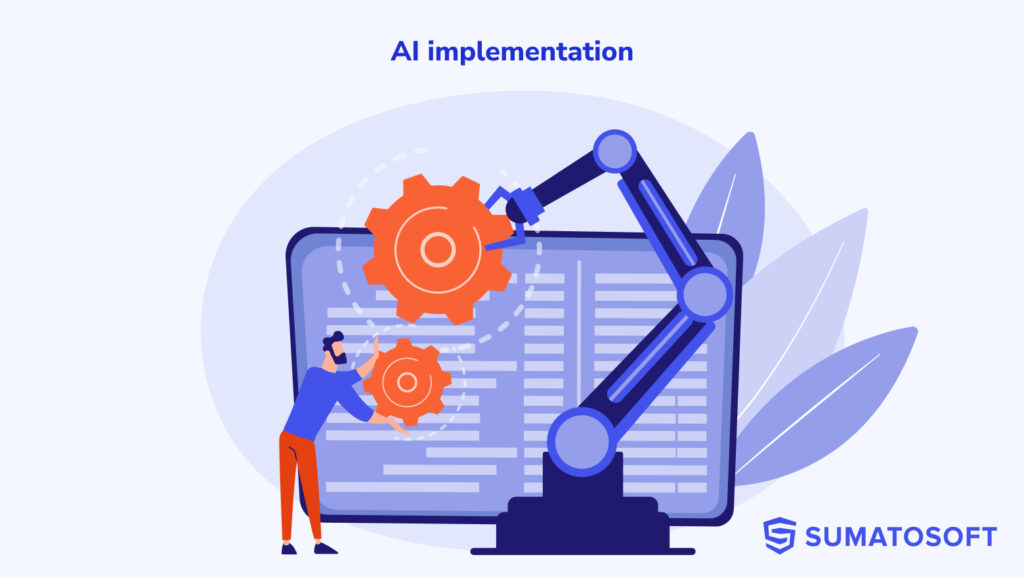Logistics software development services
Streamline your supply chain, optimize routes, and enhance tracking with powerful logistics software tailored to your business needs. Our custom logistics solutions improve efficiency, reduce costs, and provide real-time data visibility, empowering you to stay ahead of the competition.
IT services we offer
Custom logistics software development
We build custom websites and mobile applications that help managing freight and shipping costs, meeting service agreements, automating job scheduling, and tracking and optimizing transit time and routes.
Software Reengineering
We analyze the website and app quality, fix bugs, do code refactoring, and change the process flow for existing logistics solutions.
Integration with third-party software
We create effective ecosystems for the supply chain. We build integration of logistics management systems with 3PL companies and existing logistics solutions on the market.
Automation and Optimization
We help to digitalize logistics businesses by implementing technologies to them. Our senior-level business analysts help to automate and optimize processes and increase the efficiency and effectiveness of the logistics business.
Custom logistics software we make
Logistics & Transportation companies have many branches and subdivisions with their peculiar process and zones of responsibility. Whether you’re a US-based freight forwarding business, managing a warehouse, or seeking fleet management software, our logistics software development services can optimize your operations and elevate your business in the competitive North American market.
Freight management software
Transportation management software
Complex logistics management software
Fleet management software
Supply chain management and security
Transit time optimization and management
Product integrity and damage control
Product integrity and damage control
Fuel price volatility
Driver activity monitoring
Advance your logistics software
Internet of Things
In the US, the use of IoT technology is revolutionizing transportation and logistics software. IoT applications are especially beneficial for American logistics businesses in fleet management, vehicle tracking, route optimization, inventory management, and strategic planning.
Artificial Intelligence
Use the power of artificial intelligence to create applications that predict demand, modify orders, and re-route in-transit goods to warehouses where needed. With AI-powered applications, warehousing, predictive analytics, smart reporting and intelligent forecasting will evolve to the next level.
Big Data & Machine Learning
Machine Learning technologies are becoming an integral part of logistics software development services. They provide a comprehensive overview of the supply chain and impact processes such as purchasing, delivery, inventory management, maintenance, scheduling optimization, and accident prediction.
The way we develop logistics software
One of the most important parts of the your logistics project development process. Our business and tech experts analyze your project requirements, plans, and current challenges, and come up with the vision of the future software solution.
We design software (interfaces and applications) based on the end-user experience and with a view to its value for the Client’s business.
Our software development team creates logistics software solutions rigorously following the approved concept and your business requirements.
Our development team performs a complete test cycle to ensure that all processes go along with the quality standards defined for the logistics software.
We coordinate the work of the new software with other company’s systems to ensure that all tools work as a single cooperating organism.
Our dev team members tune out the software, upgrade it and support its work as long as you need our technical help or advice.
Transportation and logistics software benefits for business
Modern software has changed lots of businesses around the world, and the process keeps going. Don’t miss a chance to bring your logistics company on the edge of technological progress and beat your competitors.
- Complete orders efficiently, on time, and at the lowest cost with modern logistics software.
- Increase profits and margins.
- Take more orders and increase throughput with the same human resources.
- Automate your processes and reduce paperwork
- Make the business more predictable.
- Evaluate the performance of people, processes, contractors.
- Predict future demand using predictive analysis features.
- Make timely decisions thanks to real-time data.
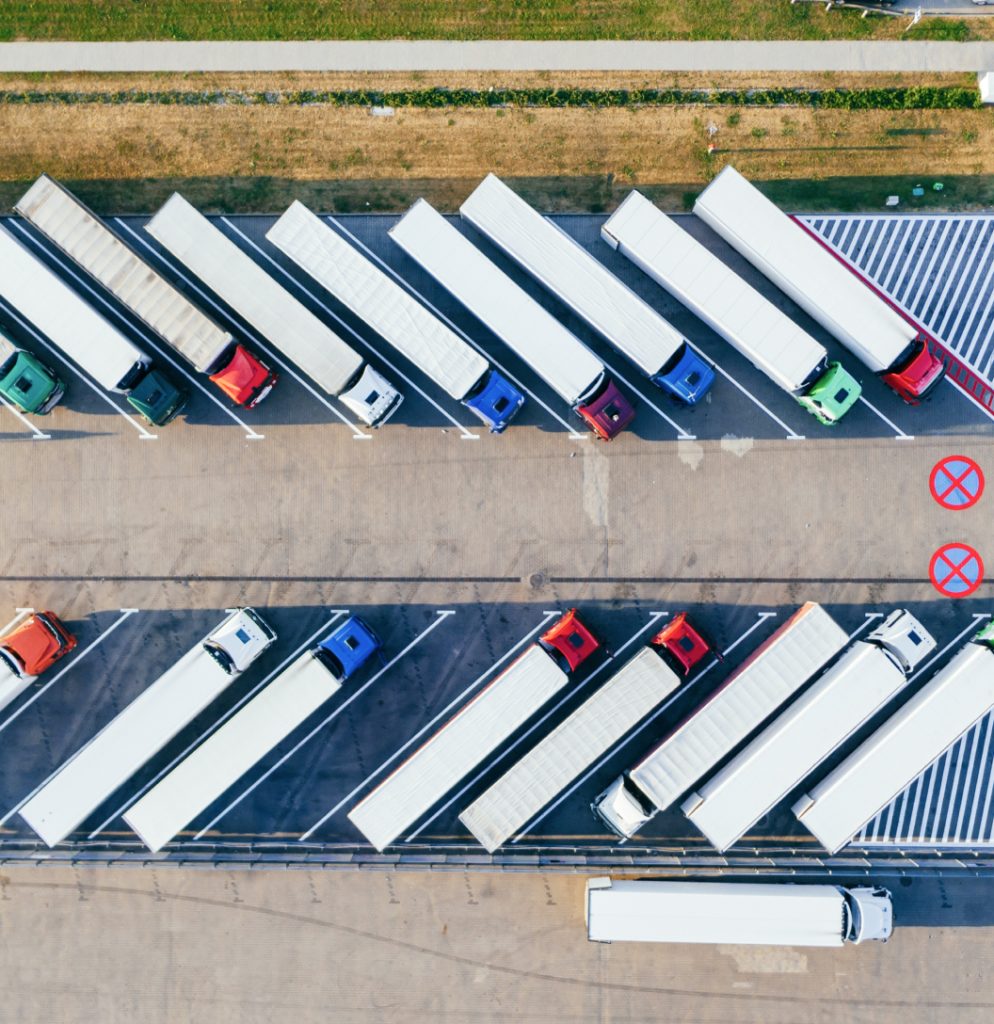
Software we developed
Transportation management system
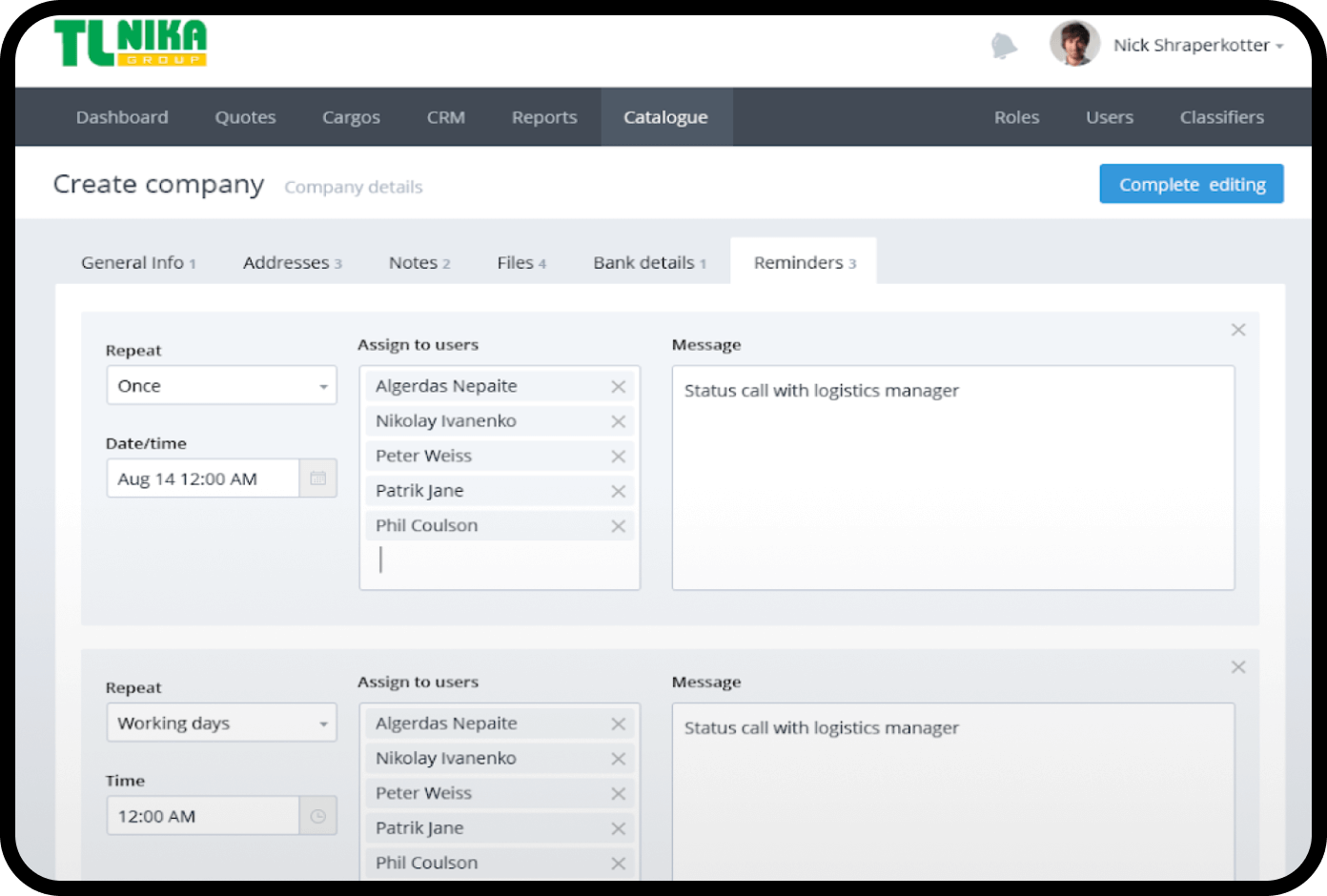

Custom ERP system for Toyota car dealer
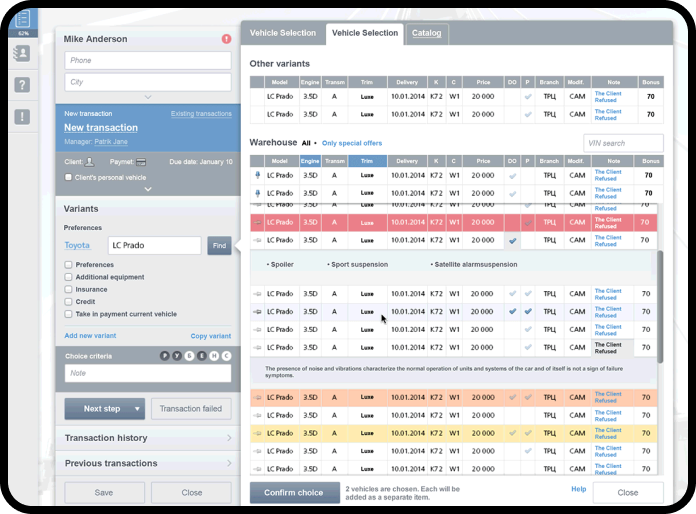

Freight forwarding logistics web service
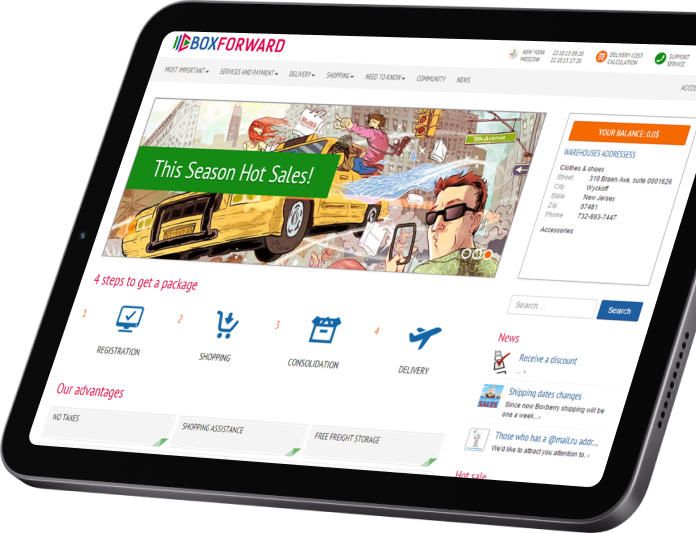
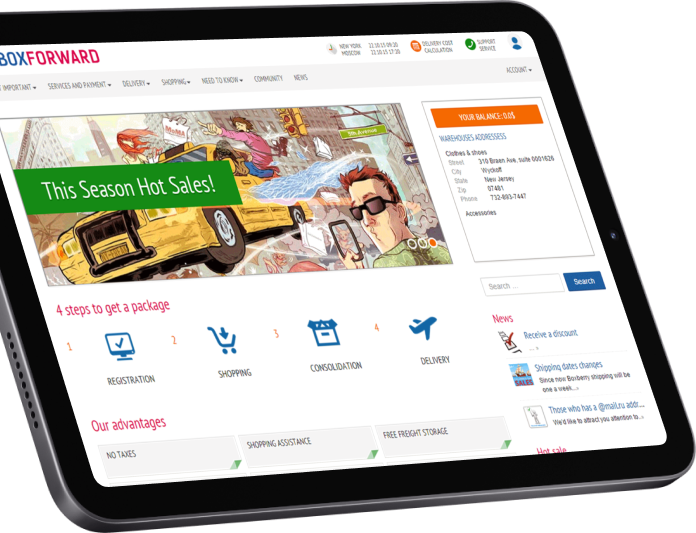
Why SumatoSoft logistics software development services
Experience
Using the best software development practices
Experienced after 36K+ hours of custom logistics software development
Open to sharing knowledge and experience
Speed
Agile (Scrum, Kanban) methodology
100% transparency of the process
Dedicated Technical
PO / PM / BA
Control
Clear and detailed time & cost estimates
Sprint / monthly reports,
custom reports
Regular communications: calls, emails, chats, personal meetings
Rewards & Recognitions
Let’s start
If you have any questions, email us info@sumatosoft.com

We have awesome stories to tell you
Frequently asked questions
When do you need custom transportation app software development?
The most simple wat to answer this question is to look at your business and ask yourself two questions:
- Do I see options on how to improve my business?
- Do I see bottlenecks that are impossible to solve purely with the processes changes?
If the answer at lest on one of this question is yes, your business definitely needs an app or website.
Do you work with existing transportation and logistics software or only develop solutions from scratch?
We work both with existing transportation and logistics software and develop new custom logistics software.
Regarding the improvement of existing software, we can reengineer the solution, run performance, security, and usability tests to understand the quality of the app. We also can examine the code, develop new models, or integrate the existing solution with other software.
What is your pricing model for logistics software development services?
We at SumatoSoft, work with 3 pricing models when building logistics projects: fixed price, time & material, and dedicated team. The choice of the model depends on your project budget, business goals, timelines, and other factors. You make the final choice of the model, we only advise on the most suitable model for the specific logistics project. From our experience, 90% of our customers prefer to cooperate using the price & material engagement model. Let’s discuss them.
Fixed price
When the project scope is defined, we use a fixed price cost estimation model. Payments are made on pre-defined milestones. 3 features characterize this pricing model: we work with a clearly defined and unchangeable specification, the client and we approve the budget of the logistics software development at the beginning of the project, and we agree upon deadlines. The fixed price model is extremely rigid regarding any project scope, budget, or timeline changes.
Time & Material
Time & Material engagement model means billing is based on actual time worked by each team member. This model is flexible to requirements change requests during the project development. 90% of our clients find this model the most suitable for their logistics software development projects. This model is tolerant to requirements, budget, and timeline changes. This model also guarantees that the final application or website will meet your business requirements.
Dedicated team
Our software developers become a part of your team, which is being managed by your colleagues. Billing is based on the hourly rates of the developers included in the dedicated team on a monthly basis. This model is useful when you have well-established in-house management andthe project is planned to be a long-lasting one.
What is the major technology stack and cost towards logistics app development?
The technology stack for logistics software development can include PHP, Python, JavaScript, SQL, Angular, Google Maps, Laravel, and here comes the list of almost all other technologies for website and mobile app development. Instead of describing all possible combinations of tech stack, we describe several aspects of logistics software development and technologies we use for them.
Start with the most evident part of any software development project: every application or a website needs front-end and back-end. We prefer Ruby on Rails as a full stack development framework both for front- and backend. Rails is cheap, fast, and quality framework – so we picked it as our core competence.
Sometimes we refer to other frameworks like AngularJS, ReactJS, React, Bootstrap. We also use languages for native iOS and Android development, but it’s no an often case.
One more thing to mention here is mapping technologies. The evident market leader is Google Map. However, we also like a solution Maptitude.
Regarding databases, we prefer PostgreSQL, Redis, MySQL. And speaking about web server software: we are experts at two most popular solutions, Apache and Nginx. Sometimes we also use Phusion Passenger that easily integrates with the mentioned solutions.
To continue, we use Amazon Web Servers as a main cloud solution to run logistics app.
Finally, we can empower the website with artificial intelligence, machine learning, and big data technologies.
This is the core tech stack. It allows to build almost any logistics solution that requires such things like:
- real-time location tracking using geotags;
- route visualization;
- freights cost calculations;
- processing and storing of large data sets;
- interactive dashboards;
- traffic and route optimization;
- fuel tracking;
- M2M communication;
- and more.
The final cost of custom logistics software and app development services depends on 5 key factors: target platform and devices, feature scope, UX/UI, team size, and location. The average price range for a full-fledged application will be between $100.000 and $300.000, while MVP development (the initial version of a mobile app) will require $10.000 – $50.000.












